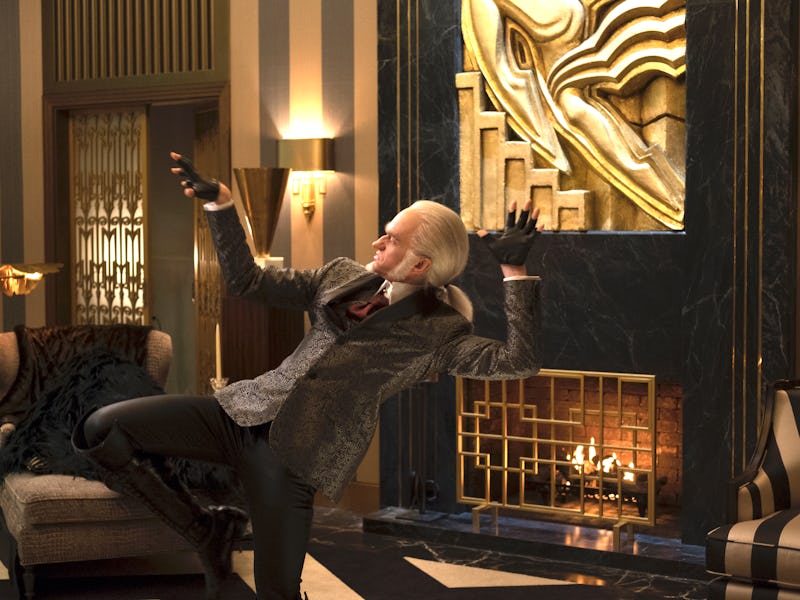'Unfortunate Events’ Season 2 is an Anti-Hero's Journey and It's Brilliant
The subversive Netflix series is back. And this time, the bad guy is even better.

The narrative core of the Netflix series, A Series of Unforntaute Events, is ostensibly about the plight and fate of the plucky Baudelaire orphans. But, as Lemony Snicket might say, “ostensibly” is a word here which means: “not really really about the Baudelaires, but instead focused on Cout Olaf.” The second season of the subversive YA adaptation of the popular Snicket books is deeper and darker than the first batch of episodes. And that’s because this time around, the show embraces its most compelling qualities: Count Olaf as startlingly realistic loser gone mad.
No spoilers ahead for A Series of Unfortunate Events season 2.
On Friday, Netflix will release all ten episodes of the second season of A Series of Unforntaute Events. As with season one, a single book from the series will be adapted over the course of two episodes. And for fans of those books, the advantage of this season over the inaugural one is that these are the better batch of stories.
In the first four books, the plots are more or less the same every time. Count Olaf shows up in some kind of disguise and tries to steal the fortune of Sunny, Klaus and Violet Baudelaire. But in the later books, after the Baudelaires start to figure out that there’s a bigger conspiracy at work, and that their late parents were part of a secret organization of spies, the stories get way juicier. Obviously, the first season of the Netflix show teased all of this out in a big way and even added the show’s best non-book character; the super-agent hero of Jacquelyn. And now, thanks to the more complex source material, the adventure of the Baudelaires comes across as a given, meaning the spirit of the show is handed over to Count Olaf.
For the adult audience of A Series of Unforntaute Events, Olaf’s story is compelling this season because we either relate to him in small ways or know someone exactly like him. Sure, most people aren’t evil masterminds trying to steal the fortune of orphans, but we all know people who feel like their talents aren’t appreciated enough and go to great lengths to desperately prove it. Because Count Olaf is a failed actor, who is constantly trying to convince everyone he’s a great one, the character has a built-in realism, despite being surrounded by surrealism. He’s not sympathetic at all, but because Neil Patrick Harris is even funnier — and more musical — this season, the reason to keep watching the show is easily for the cutting Olaf one-liners.
Neil Patrick Harris as Olaf and Lucy Punch as Esme Squalor.
Starting with “The Austere Academy” all these episodes play to the Olaf-as-a-delusional-loser theme with bitter precision. When Olaf is revisiting his middle school alma mater, one of his henchpersons asks “were you unpopular?” to which Olaf scoffs and says “No! I was a rebel!” The line is delivered with just enough irony to ring true. Olaf was a rebel, just not in a good way. Some bad guys are bad because they’re idiots with a lot of confidence.
And therein lies the brilliance of A Series of Unfortunate Events anti-hero’s journey. In a world of TV series and films obsessed with complex morality tales, this series presents a simple one. Sometimes very bad people are just really, really dumb and oddly resourceful at the same time. This fact, like the rest of series, would be tragic. But because the wit is up to the pitch-perfect slyness of the books and the previous season, A Series of Unfortunate Events continues to be the most hilariously original and darkly ironic show to ever be called “binge-worthy.”
A Series of Unfortunate Events hits Netflix on April 30, 2018.